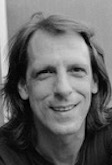


Dr. Michael Holzinger
Dr. Michael Holzinger is CNRS senior researcher at the Département de Chimie Moléculaire (DCM) in Grenoble, France where he’s working on porous carbon nanostructure based electrodes for biosensor and biofuel cell applications. He started his carrer in the late nineties working on the functionalization of carbon nanotubes as PhD student in the group of Prof. Dr. Hirsch at the Institute of Organic Chemistry, University Erlangen-Nürnberg, Germany. He developed adjusted several organic chemical reactions for the exoheral modification of such carbon nanotubes. After his Ph.D., he joined the group of Dr. Patrick Bernier at the University of Montpellier II, France, where he worked on the fabrication of reinforced carbon nanotube composites and the optimization of the production of carbon nanotubes and nitrogen-doped carbon nanotubes. He then joined the group of Dr. Siegmar Roth at the Max Planck Institute for solid state research in Stuttgart, Germany, where he developed new functionalization methods for such hetero nanotubes.
Since he joined the DCM in 2006, his research interest is focused on the development of biosensors and biofuel cells based on functionalized nanomaterials.
Dr. Michael Holzinger developed original approaches for efficient grafting of bioreceptor units on carbon nanotube matrices and composites using non-covalent and electrochemical techniques. Beside his scientific research in the bioanalytical field, Dr. Michael Holzinger focuses his activities on biological energy conversion using enzymes and/or bio-inspired catalysts and glucose as fuel. The challenge here is the efficient wiring of the catalysts i.e. an optimized electron transfer between the catalytic site and the electrode material.
His scientific findings on nanostructured electrochemical biosensors and glucose biofuel cells were honored by the young researcher award of the Analytical Chemistry Division (DCA) and by the nomination as distinguished junior member of the French Chemical Society (SCF) in 2013.
He became an active member in the steering committee of the Physical Chemistry Division (DCP) of the SCF where he was strongly involved in the formation of the new sub-division “Nanosciences” in 2013 and was elected as president of this subdivision in 2016.